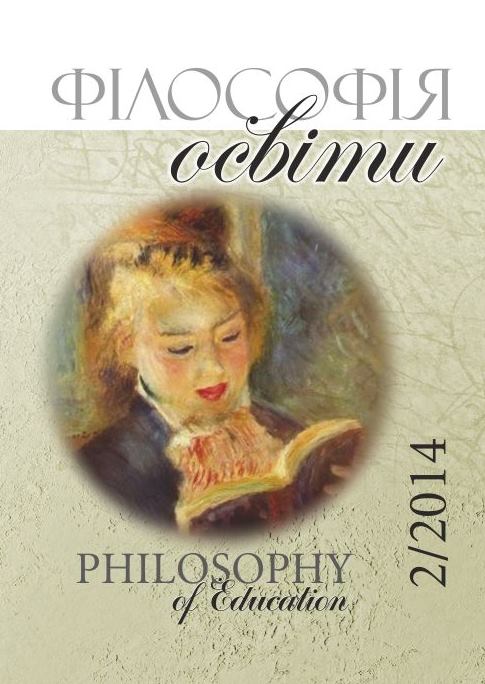Philosophy’s Pedagogy in the Age of Knowledge Cultures
Keywords:
educational philosophy, dialogue, philosophy as pedagogy, epistemology, big data, digital postcolonialism, universalism, cybernetic capitalism, openness, col(labor)ation, knowledge cultures, collective intelligence, creative laborAbstract
This conversation is an abbreviated version of the articles “Philosophy of education in the age of digital reason” (Peters & Jandrić, 2015a) and “Learning, creative col(labor)ation, and knowledge cultures” (Peters & Jandrić, 2015b). The conversation is preceded with a dedicated Open Letter to Ukrainian Philosophers of Education, co-authored by Michael Peters,
Tina Besley, and Petar Jandrić. In the first part of the conversation, Michael Peters discusses his philosophy of education in and for the age of digital media and places his work in three interlocked themes: philosophy, political knowledge economy, and academic publishing. The second part of the conversation introduces the notion of “philosophy as pedagogy” and Michael Peters discusses his philosophy of education in and for the age of digital postcolonialism, introduces Michael Peters’ lifelong fascination with Ludwig Wittgenstein, and analyses the advent of knowledge cultures and their relationships to human learning. The fourth part analyses the dynamics between openness, capitalism, and anti-capitalism, and uses various recent examples to link that dynamics to democracy. The fifth part of the conversation links cybernetic capitalism to learning and knowledge production, and elaborates the movement of open education. The final, sixth part of the conversation explores practical and epistemic consequences of peer-to-peer and wisdomof-
the-group approaches. It shows that doing science is a privilege and a responsibility, and points towards transformation of academic labor from perpetuation of capitalism towards subversion.
Downloads
-
PDF
Downloads: 245
Published
How to Cite
Issue
Section
License
- Authors who publish with this journal agree to the following terms:
- Authors retain copyright and grant the journal right of first publication;
- Authors are able to enter into separate, additional contractual arrangements for the non-exclusive distribution of the journal's published version of the work (e.g., post it to an institutional repository or publish it in a book), with an acknowledgement of its initial publication in this journal.





